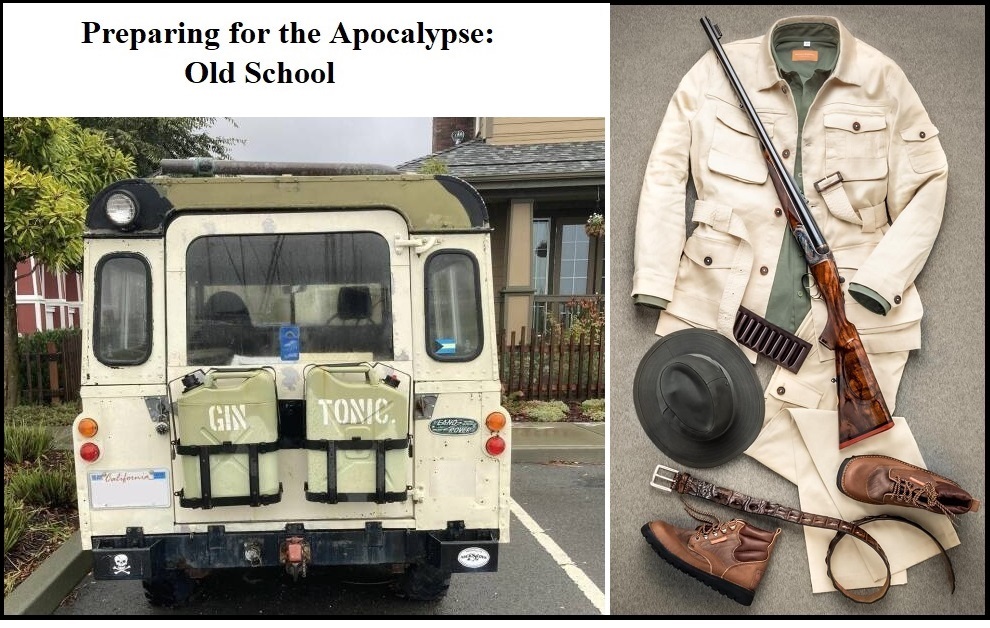I have said, many times before on this blog and elsewhere, that in America there is no such thing as “taking to law into our own hands”, for the simple reason that in America, the law has never left our hands. Oh sure, we have deputized its enforcement, mostly to local law enforcement and (lamentably) on occasion to the federal government.
But make no mistake: if our deputized law enforcement is unable or unwilling to enforce the law (most often the former, thank goodness), then it is indeed up to We The People to make damn sure that it is. Which is why we have statutes like the Castle Doctrine and “stand your ground” principles; we have every right to defend our families and properties, and that defense does not require us to “run away” in the face of such predation either. (Of course, in some states — Massachusetts, Minnesota etc. — such prescriptions are an anathema, which is why their citizens live in fear most of the time, whereas in Florida, Oklahoma and Texas criminals commit crimes at their own peril, and the law-abiding are not themselves prosecuted for providing that peril.)
Which brings me to the next issue involving fundamental principle: disaster recovery.
The United States, taken has a whole, experiences a wider range of natural disasters than just about anywhere else: tropical storms and hurricanes, blizzards and deep freezes, earthquakes, volcanic eruptions, wildfires and floods; you name the manifestations of that bitch Mother Nature’s enmity, and we get ’em, good and hard.
Typically, the responses to such disasters take several forms: at state level, if the government has its ducks in a row, you have disaster preparation such as Florida having a veritable army of utility workers prepositioned to make sure that infrastructure can be restored quickly (thank you, Gov. DeSantis), or Texas having a “rainy day” fund for precisely that purpose. And if you can take anything to the bank these days, it is the generosity of ordinary Americans to help out where they can, trucking in supplies such as water, food, construction materials and so on, quite often without asking any form of compensation other than grateful thanks from the recipients.
And then you have the federal government’s attempts at recovery assistance. What a fuckup. The so-called Federal Emergency Management Administration (FEMA) has proven itself most recently to be completely and utterly inept, which by the way is typical of any Big Government agency trying to address a local situation: they screw things up.
Worse still, when Big Agency can’t provide assistance, its inherent systemic arrogance often leads to hindering and even preventing assistance from being delivered by private individuals and organizations. (It’s a childish and petulant attitude that “If we can’t do it, then nobody can”, and it’s a typical manifestation of bad government.)
Over at PJMedia, Scott Pinsker has written a fine piece on just this topic. Go ahead and read it because it contains all the details that I can’t be bothered with; but at the end he comes to this conclusion:
Most FEMA fieldworkers [as opposed to FEMA management — K.] are doing the best they can. But something profound is going on: The American people have stopped expecting the government to help them. Instead, they’re turning to the Free Market.
And:
The majority of Asheville residents (the ones who are still left) probably couldn’t tell you who runs FEMA. But I guarantee you they know who Elon Musk is: He’s the billionaire who’s actually trying to make a difference.
And when help finally comes to North Carolina, it’ll be from Musk — not Uncle Sam.
Keep your eyes on this: The ground is starting to shift… and not because of natural disasters.
I expect that voters are going to demand from their state governments that they (state government) and not FEMA be held responsible and accountable for disaster recovery. What should follow after that is the state government should actively prosecute federal officials for getting in the way.
And I’m not advocating this, but I am warning of it: the next time some FEMA helicopter “propwashes” an “unapproved” private supply dump, do not be surprised if local residents react violently.
I’m pretty sure that I’d be tempted to, in such a situation — and I’m ordinarily the most law-abiding person I know. But catastrophe and disaster are not “ordinary” situations, and while a federal government agency may see it as just another bureaucratic exercise needing proper, orderly management, the people on the ground won’t, and shouldn’t.
Their lives and community are more important, and the sooner Big Government realizes that, the better — because if they don’t, a shit-storm will follow, and it will be their own fault.




